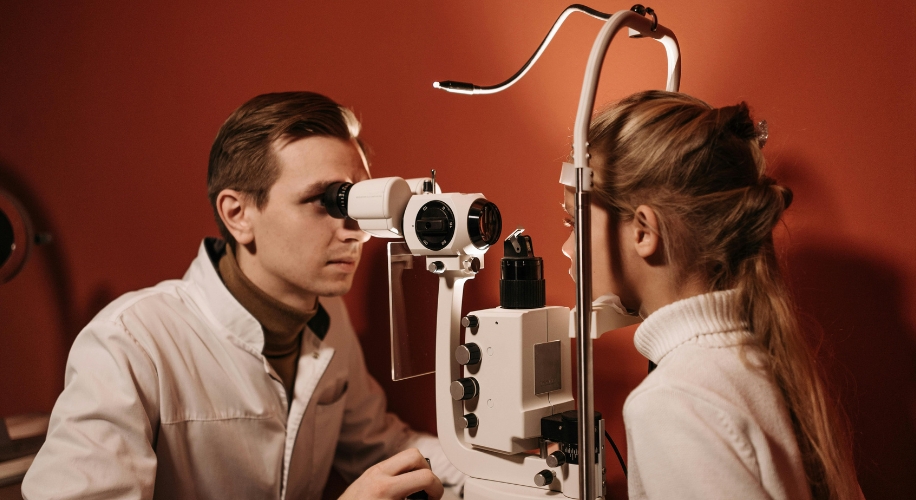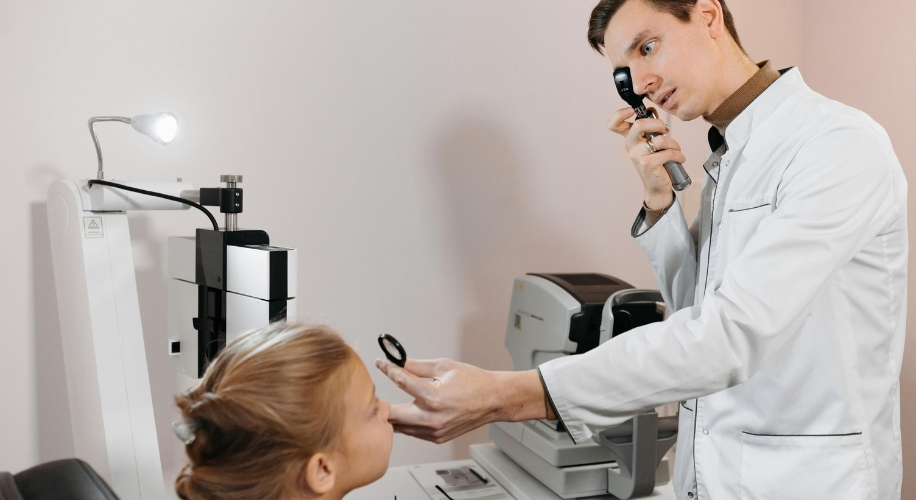The Importance of Regular Eye Exams: Don’t Overlook Your Vision
- BY Dr. Steven Liem
- IN Eye Health

Photo by Pavel Danilyuk
Maintaining optimal vision is crucial for overall well-being, yet many individuals underestimate the importance of regular eye exams. As an eyecare provider, we understand that your eyes are not just windows to the soul, but also a vital part of how you experience the world. That’s why we’re here to emphasize how crucial it is to never overlook the health of your eyes.
Understanding the Benefits of Eye Exams
Regular eye exams are not just about checking if your prescription has changed. They are comprehensive evaluations of your visual health that can detect early signs of systemic conditions. Here are the key reasons why you should never skip an eye exam:
- Early Detection of Eye Diseases: Conditions like glaucoma, cataracts, and macular degeneration can be discovered in their early stages during an eye exam, often before you notice any symptoms.
- Systemic Health Checks: Your eyes can reveal clues about your overall health. Hypertension and diabetes can be detected through changes in blood vessels and the retina.
- Updating Prescriptions: To ensure optimal vision, your eyeglass or contact lens prescription may need adjustments, especially if you’ve noticed changes in your vision.
- Assessing Digital Eye Strain: In this digital age, many suffer from eye strain due to prolonged screen time. An eye exam can help address this and suggest solutions, like blue light blocking glasses.
- Lifestyle Recommendations: An optometrist can provide you with tips tailored to your lifestyle, such as UV protection if you spend a lot of time outdoors.
Eye Exam Frequency: How Often Should You Go?

Photo by Pavel Danilyuk
How frequently you should get your eyes checked often depends on your age, health, and risk of developing eye problems. Here’s a general guideline:
- Children: Should have their first comprehensive eye exam at 6 months, then at age 3 and before entering first grade, and biennially thereafter.
- Adults: If you have no symptoms or family history of eye disease, exams are recommended every two years. However, if you wear glasses or contacts, you may need to be examined annually or as advised by your eye care provider.
- Seniors: Those over the age of 60 should have annual exams to check for age-related eye conditions.
- High-Risk Individuals: If you have diabetes, a family history of eye disease, or other health concerns, you may need more frequent exams.
Choosing the Right Eyewear After an Exam
After your eye exam, if your prescription has changed or if you’re a first-time eyeglass wearer, it’s key to find the right eyewear that suits your vision needs and style preferences. At Zenni Optical, we offer a range of affordable prescription glasses and sunglasses to meet all kinds of requirements:
- Frame Fit Tips: Our virtual try-on and frame fit guide help you find the perfect glasses for your face shape and size.
- Lens Customization: From blue light blocking to scratch-resistant coatings, you can customize your lenses to cater to your lifestyle.
- Frame Materials Guide: Choose from durable, lightweight frames and various materials that offer comfort and style.
- Current Promotions: We believe in affordability without compromising quality. Check out our website for the latest deals and discounts.
Remember, eye exams are a preventative measure for maintaining your vision and overall health. Don’t wait for symptoms to arise. Be proactive and schedule your regular eye exam today. Our friendly, knowledgeable team is here to guide you every step of the way, from understanding your prescription to picking out your new favorite pair of glasses. Visit Zenni Optical for more information and to browse our extensive selection of eyewear tailored to your needs.

